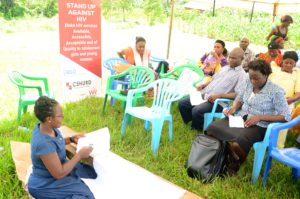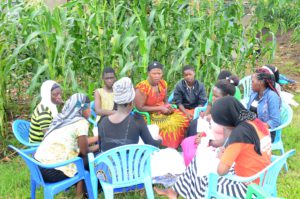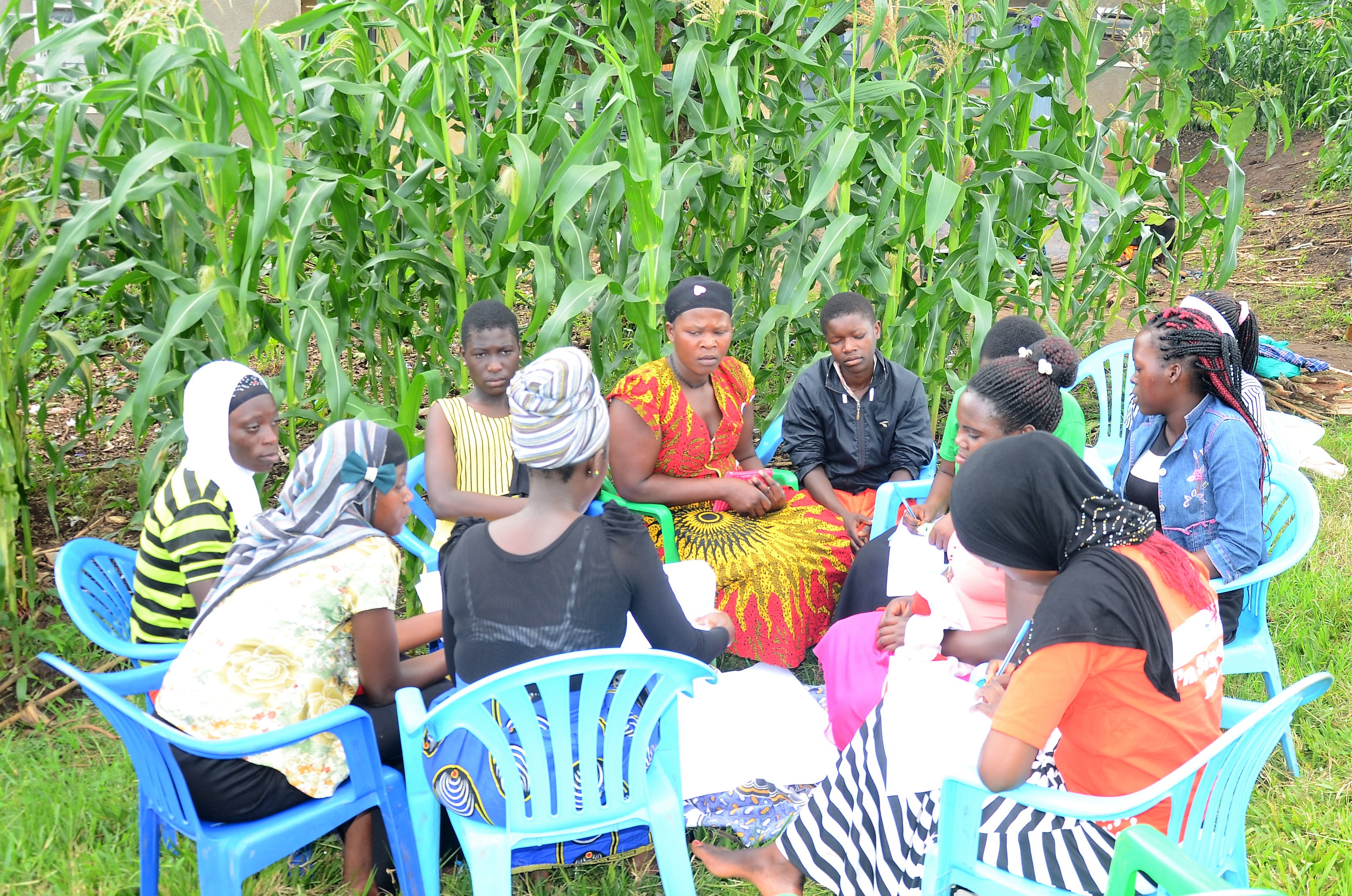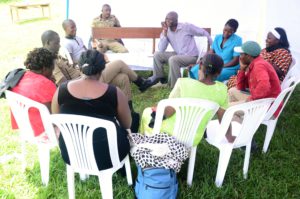By Serunjogi Francis.
According to the National HIV and AIDS Strategic Plan 2015/2016 – 2019/2020), women and girls in Uganda, constitute the largest proportion of Persons Living with HIV PLHIV – 8.3% compared to men at 6.1% (UAIS 2011). On the other hand, recent UNAIDS data shows that each week in Uganda, 570 young women aged 15-24 get infected with HIV.
During interventions with Adolescent Girls and Young Women (AGYW) in Mukono and Gomba, CEHURD has realized that there are still patent gaps in HIV response and this is attributed to risks encountered by this age group which are linked to social, economic, legal as well as other factors.
As an intervention, CEHURD with technical support from International Development Law Organization (IDLO) and ViiV Health Care under the “Integrating Legal Empowerment and social accountability for Quality HIV Health services for AGYW” project are applying and implementing a Community Score Card in the districts of Mukono and Gomba with different community stakeholders including Community Health Advocates who are AGYW, Justice Actors, Members of community village committees such as Health Unit Management Committees, health services providers as well as Community Based Organization actors.
 This process has enabled CEHURD to enhance capacities of different stake holders to utilize rights based local engagement and feedback processes for improving HIV related health service delivery as well as addressing Gender based violence among AGYW. This has been achieved through supporting these different stake holders including AGYW themselves to develop action plans which will be followed to in a process of improving access to HIV services as well as addressing Gender Based Violence. CEHURD has also managed to increase community knowledge and skills in advancing access to HIV related services for, and rights of, AGYW.
This process has enabled CEHURD to enhance capacities of different stake holders to utilize rights based local engagement and feedback processes for improving HIV related health service delivery as well as addressing Gender based violence among AGYW. This has been achieved through supporting these different stake holders including AGYW themselves to develop action plans which will be followed to in a process of improving access to HIV services as well as addressing Gender Based Violence. CEHURD has also managed to increase community knowledge and skills in advancing access to HIV related services for, and rights of, AGYW.
During this process, AGWY have been given an opportunity to air out their concerns to both Health and Justice Service providers including Health workers, community village health committees, police officers and local leaders that MUST be addressed if access to HIV related services for this age group MUST be improved as well as Sexual and Gender based violence addressed.
 AGYW requested CEHURD to convene more community dialogues with stakeholders such as District Officials, District Leaders, Members of Parliament and Parents as well as Caregivers which platform will further give them an opportunity to air out their grievances that deter them from accessing HIV related services including addressing Sexual and Gender based violence.
AGYW requested CEHURD to convene more community dialogues with stakeholders such as District Officials, District Leaders, Members of Parliament and Parents as well as Caregivers which platform will further give them an opportunity to air out their grievances that deter them from accessing HIV related services including addressing Sexual and Gender based violence.
CEHURD replied in affirmative to this request and will be conducting community dialogues which will bring together more stakeholders and AGYW hence discussing and coming to a consensus on how to further improve access to quality HIV services for AGYW as well as addressing Sexual and Gender based violence.


